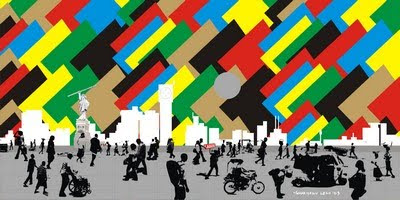I wonder if the same findings would apply in Nigeria:
More than half of Ugandan girls who enrol in grade one drop out before sitting for their primary school-leaving examinations. The fact that girls are dropping out between age 11 and 13 is being linked to the beginning of the menstruation cycle and its associated challenges.
Research conducted by a non-government organisation, the Forum of African Women Educationalists (FAWE), reveals that the lack of sanitary pads, coupled with other factors like the absence of water or separate toilet facilities for girls in many schools, is responsible for the drop-out rate.
Despite tax waivers introduced to reduce the cost of sanitary pads, finding money to buy them each month is a challenge for many grown women, never mind pre-teen girls.
A packet of sanitary pads costs the equivalent of $1.50 in Uganda - for the same amount you could get a kilo of sugar for the whole household. Girls whose parents can't afford to give them the money improvise with strips of toilet paper or old cloth. "Sometimes you buy two packets depending on the flow," says Florence Kanyike, national coordinator of FAWE in Uganda. "For some girls the flow is heavy and they will need to change pad in the course of the day."
In their study of challenges to girl child education, FAWE researchers found that taboos and silence associated with menstruation in many communities mean some girls are in any case unable to ask their parents for money to buy pads, and forced to find ways of getting money on their own.
Raising the subject can put unwanted pressures on a young girl. Kanyike says that for some parents, when a girl starts menstruating, it's a sign that she is mature enough for marriage. This is the age at which many girls in rural areas are sent into forced marriages.
Maimuna Kagoya has just started secondary school. She's fortunate that her aunt, Aisha, buys pads for her. In her Muslim family, Maimuna will be assumed to be ripe for marriage once she's known to be menstruating.
Speaking to IPS in the presence of her aunt, Maimuna says many of her friends dropped out of school although she is not sure if it was related to menstruation.
One risky means girls less fortunate than Maimuna turn to to raise the money on their own is through sexual relationships with much older men who can provide the cash; one consequence of this is a large number of unwanted pregnancies, which then force girls to drop out of school.
Dropping out of school affects girls in the long-term by limiting their future earning potential.
FAWE has launched a campaign to de-stigmatise menstruation through "girl education movement" clubs in schools, where girls are taught to treat their periods as a normal occurrence not to be scared of.
The campaign to dispel silence around menstruation and advocate for affordable sanitary pads to be made available in local markets across the country piloted in five districts earlier this year.
The project is dealing with twelve primary schools in each district, conducting workshops with pupils to open up dialogue on the topic of menstruation. The pupils discuss anything from lack of sanitary pads, poor facilities for menstruation at school and in the community, as well as try
to find solutions.
Fatuma Wamala, programme officer at FAWE, says through the workshops they found that poor menstrual hygiene on the part of adolescent girls stem from beliefs, myths and attitudes within the community coupled with poverty.
"Many parents do not allocate any budget to sanitary materials for the girls especially in day schools," says Wamala.
She says FAWE'S advocacy has led to lower prices for sanitary towels on the open market and increased demand for sanitary towels in rural areas, where local shops are beginning to stock them.
It was FAWE's workshops with members of parliament and government officials which led to tax waivers on sanitary pads being announced by the finance minister in the 2006 national budget.
Now the lawmakers want government to go further and buy sanitary pads for female pupils in primary schools. Nabilah Sempala, a woman member of parliament for Kampala Central constituency, says government should include the cost of sanitary pads in the budget of the universal primary education.
Read more...



















